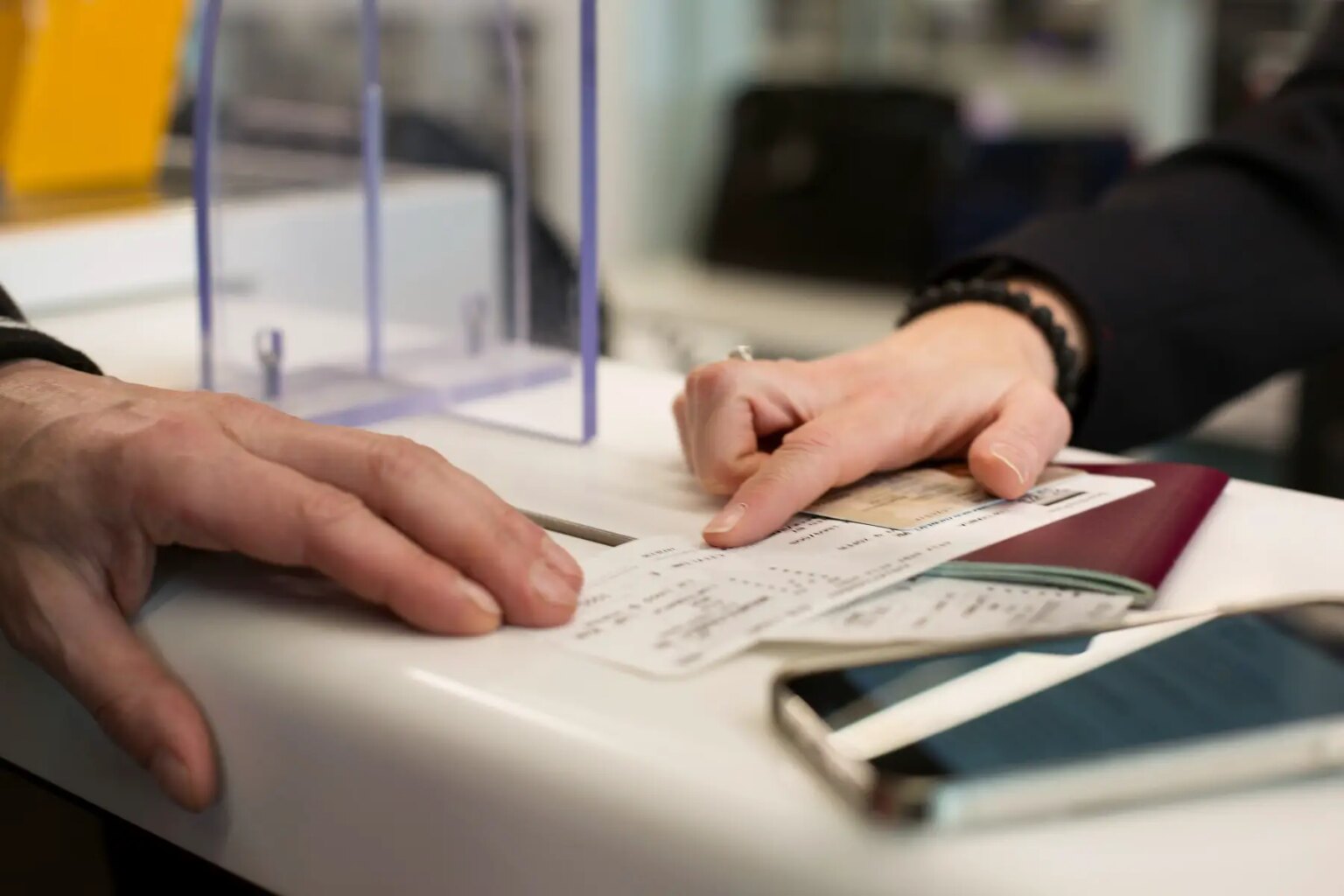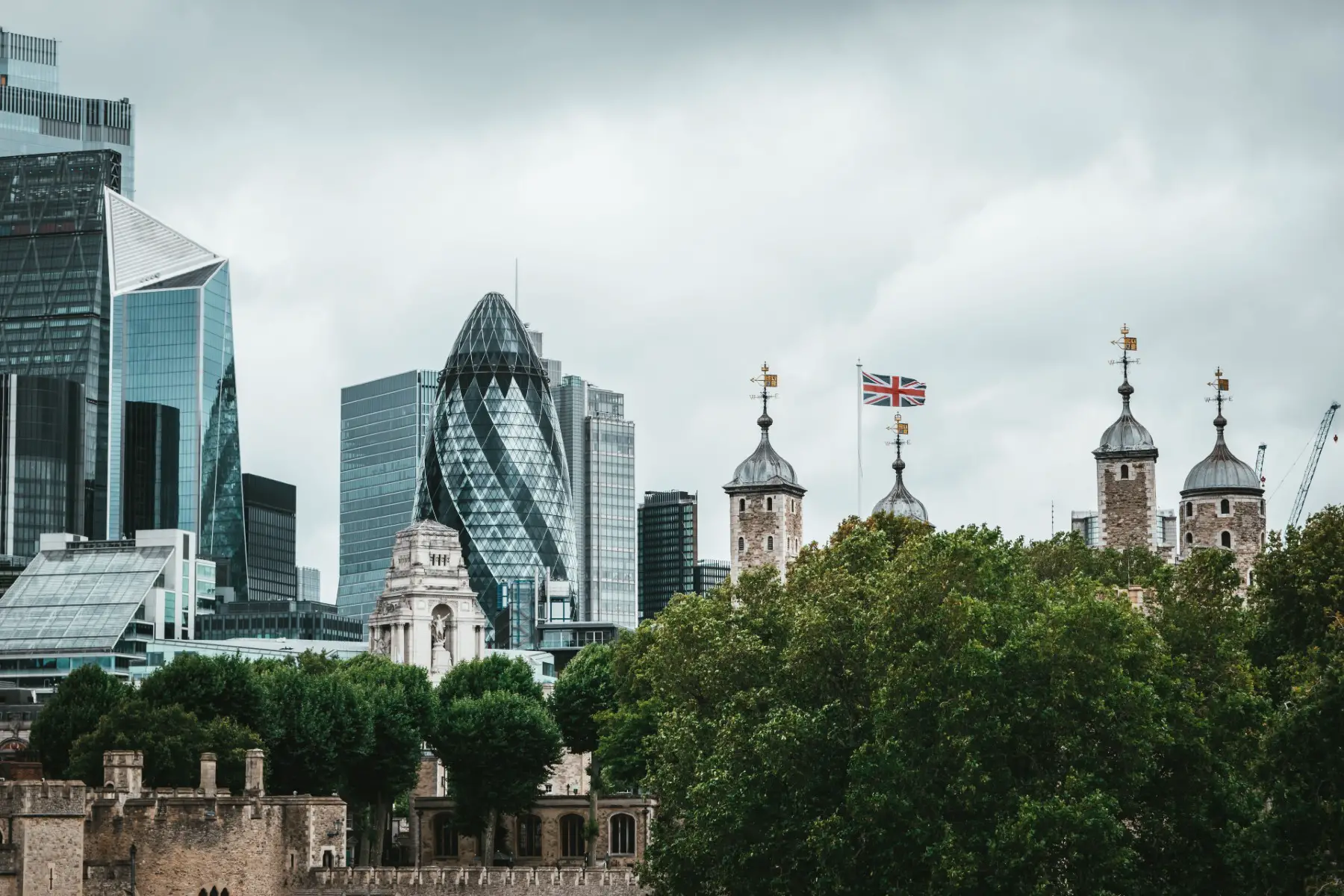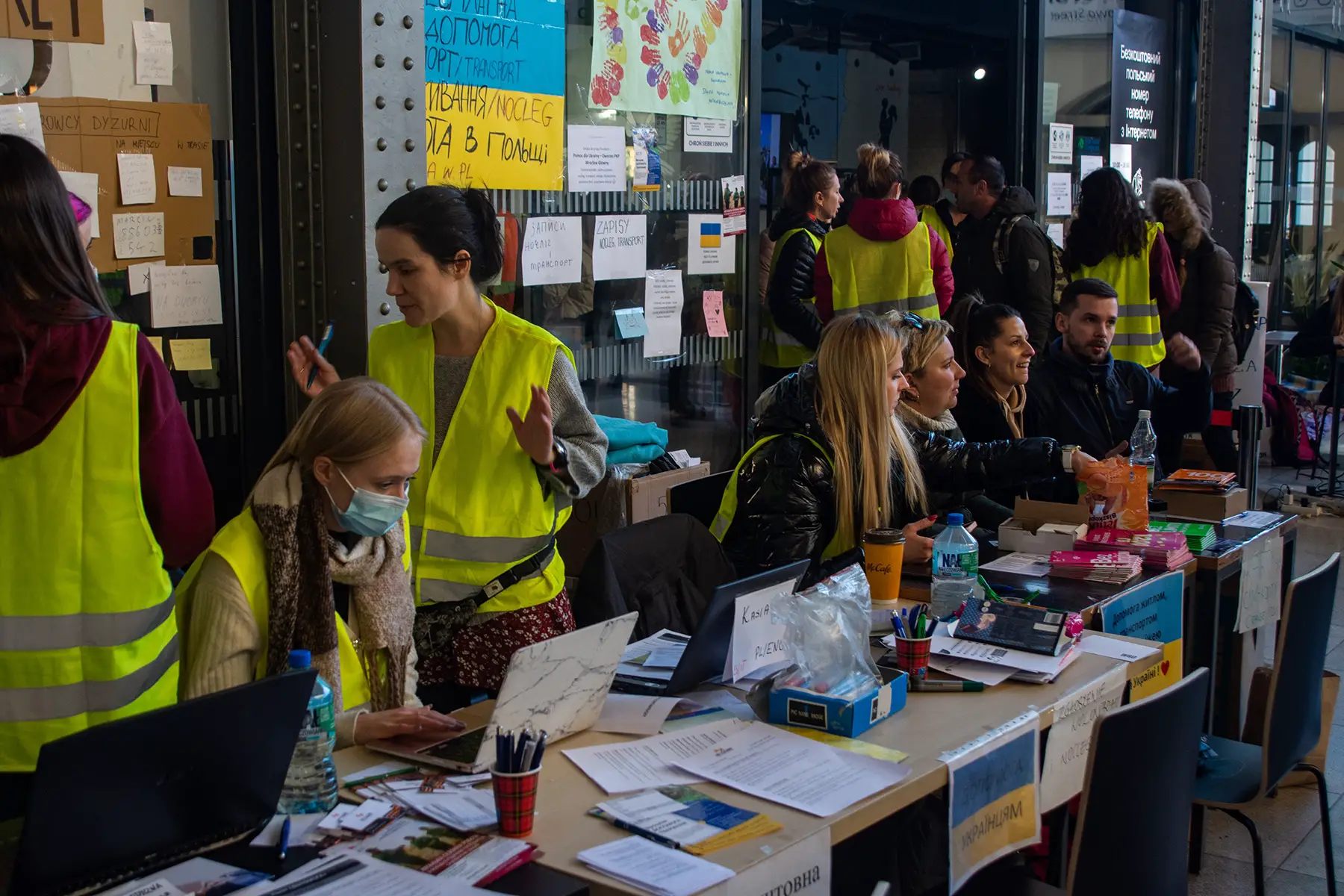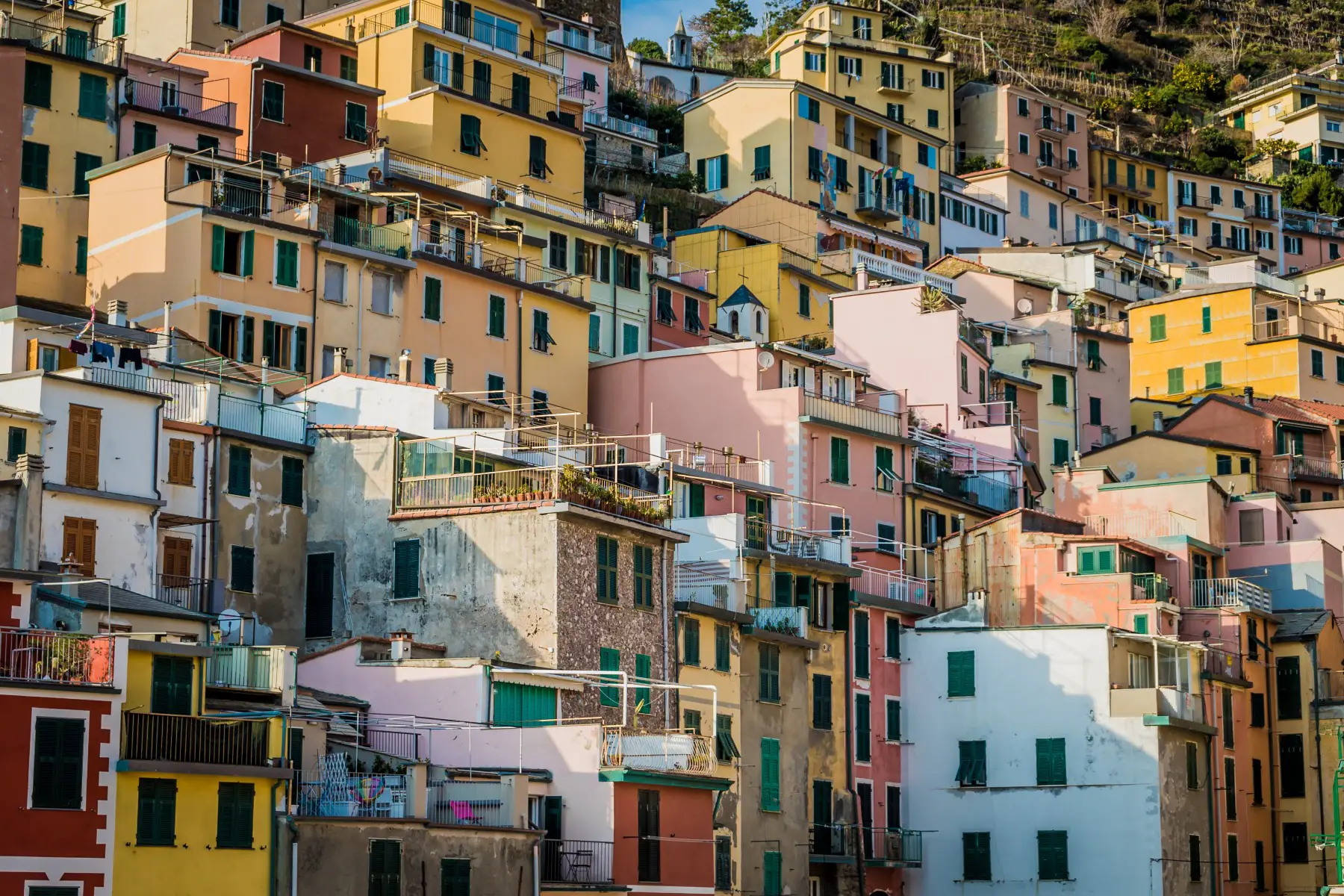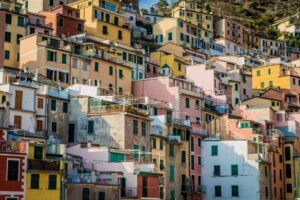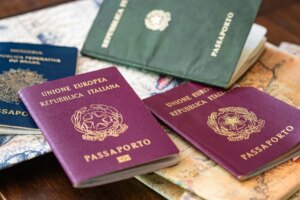Like many other countries, Italy controls who can enter and stay within its borders. Depending on your nationality, you may need an entry visa to visit the country for a long or short term. And if you like what Italy has to offer, you must apply for a residence permit before you can make the country your new home.
Learn more about the available visas, processes, and costs in the following sections:
Moving2Italy
When relocating to Italy, get expert help from Moving2Italy on taxes, work permits, and setting up a business. They also provide personalized support for immigration, social security, and residence, helping you navigate your new life abroad. For assistance with fiscal and immigration matters, contact Moving2Italy.
Immigration in Italy
With a temperate climate, rich cultural history, great food, and the third-largest economy in the European Union (EU), Italy is an attractive country for expats. This is also seen in the statistics – there were 389,542 first-time visa and permit applications in Italy in 2023. In Europe, only Poland, Spain, and Germany had more applicants.

As of January 2024, Italy is home to over 5 million resident foreigners. That is around 9% of the overall population. This number largely comprises expats from the Schengen Area, which allows for easy cross-border travel between many European countries.
That said, not everyone can move to Italy. Similar to many other countries in the EU and the European Free Trade Association (EFTA – Iceland, Liechtenstein, Norway, and Switzerland), Italy has a two-tier immigration system. While EU/EFTA citizens can travel or relocate to Italy with minimal requirements, others usually need a visa or permit.
The Ministry of the Interior (Ministero dell’Interno) is in charge of visas and immigration through its Department of Civil Liberties and Immigration (Dipartimento per le Libertà civili e l’Immigrazione).
Who needs a visa to go to Italy?
EU/EFTA citizens
Expats from the EU/EFTA with a valid passport or ID card can stay in Italy without a visa or residence permit (permesso di soggiorno). You’re allowed to take up work, study, join family members, or retire if you can prove you have:
- Sufficient income and will not depend on social security
- Adequate health insurance
If your stay extends more than three months, you must enter the civil registry (anagrafica) with your local municipality (comune). After five years in Italy, you can apply for permanent residence.
Non-EU/EFTA nationals
In general, third-country citizens from outside the EU/EFTA need a visa to enter Italy, depending on their nationality. That said, residents from just over 60 nations – including Australia, Brazil, Canada, Japan, the UK, Ukraine, and the US – can enter and stay in Italy for up to 90 days without a visa. If your visit lasts longer, you will need an Italian visa and residence permit.

The EU intends to introduce the European Travel Information and Authorization System (ETIAS). This is an electronic visa waiver system and is a requirement for non-EU/EFTA citizens who don’t need a visa for short stays in the Schengen Area.
You can check the requirements for your specific situation on the website of the Italian government.
UK citizens in Italy after Brexit
Following Britain’s withdrawal from the EU in 2021, nationals from the United Kingdom (UK) are subject to immigration controls in Italy and other EU member states.
Currently, the UK is one of the nations whose citizens can travel to Italy without a visa for up to 90 days. However, if you want to relocate to Italy, you need a visa and residence permit.
UK nationals already living in Italy before 1 January 2021 benefit from the Brexit Withdrawal Agreement. This gives you broadly the same rights as EU citizens in Italy.
You can find more information and see what applies to your case on the UK government website.
What types of Italian visas are available?
There are two categories of visas for Italy:
- Short-stay visas (also known as Schengen type C visas) – valid for up to 90 days within any 180-day period
- Long-stay visas (also called type D national visas) – apply to stays lasting longer than 90 days (i.e., three months)
What are short-stay visas for Italy?
There are several different short-stay Schengen visas available for Italy. Which one you require depends on the nature of your stay.

You can apply for the following visas:
- Family (invitation) visa
- Study visa
- Tourist visa
- Work visas, including:
- Business visa
- Research visa
- Salaried-employment visa
- Salaried-employment – Entertainment field (artists)
- Salaried-employment – Sports activities
- Self-employment visa
- Self-employment – Entertainment field (artists)
- Sports competition visa
- Transport visa
- Other short-stay visas, such as:
- Medical visa
- Mission visa
- Religious visa
- Transit visa
Family visa
Family members, spouses, or registered partners of residents in Italy can apply for a short-stay family visa. In Italy, this is also known as an invitation visa.
This visa requires you to demonstrate your relationship (e.g., with a marriage certificate) and provide your relative’s passport.
You also need to prove you have financial subsistence. This can be your own funds or a letter of sponsorship from your relation to say they will financially support you during your stay.
Study visa
For any short-term study-related trips – for example a language course, study exchange, training, seminar, or internship – you can apply for a Schengen study visa.

You will need to provide:
- A cover letter
- Proof of purpose (e.g., an internship agreement or a letter of educational placement)
- Proof of your educational qualifications
- A completed and signed form A
Tourist visa
Third-country nationals who want to go sightseeing, visit one or more cities, or experience Italian culture need a tourist visa. This visa requires that you demonstrate your socio-professional standing:
- Students – you must provide a recent reference letter on official paper from either your employer or your University, addressed to the Italian Consulate. It must be an original letter in hard copy.
- Salaried employees – documents include three recent payslips (original plus photocopies), plus a recent reference letter from your employer
- Freelancers – requirements include certificates of incorporation, three recent business bank statements, and copies of your business income taxes. Alternatively to the latter, you can also present a hard copy letter from an accountant.
- Retirees – required documents include a copy of your retirement compensation from social security
- Unemployed applicants (e.g., dependent partners or minor children) – you must provide the information of the person you are dependent on. The documentation is listed on the Italian visa website.
Work visas
If you are traveling to Italy for work purposes, you can apply for a work visa. The country has numerous work permits available, including one for freelance work.
Each of the work visas has different requirements. It is therefore important to make sure your work purpose in Italy matches the right visa.
Other visas
Medical visa
Third-country citizens who have pre-planned medical care can apply for a medical visa.

This visa is only available if:
- The treatment is deemed necessary by a medical professional or establishment in your home country
- An Italian doctor, medical specialist, hospital, or clinic has agreed to provide treatment
Documents required for this visa include:
- Your medical records
- Confirmation from the medical establishment in your home country, as well as the one in Italy
- Proof of downpayment (at least 30% of the total)
- Proof of sufficient funds to finance your healthcare, stay, and repatriation
Mission visa
The mission visa allows entry into Italy for political, governmental, or public utility functions. This visa is only available to a selection of people, including:
- Members or officials of a foreign government
- Employees of a foreign public office, foreign public entity, or international organization
- Private citizens who are carrying out activities considered of strategic relevance for the relationship between Italy and the foreign country
Your government or organization must submit the application on your behalf en demonstrate that:
- Your mission benefits the relationship between Italy and your home country
- Your status within the organization (i.e., a staff ID card)
They must also provide a verbal note that states the mission program and which authority will cover the expenses related to the mission.
Religious visa
Also known as a missionary visa, this visa is only issued when you are coming to Italy for specific religious purposes. You have to work in the religious field to qualify, for example, as a monk, nun, or imam.
During the application, you must provide supporting evidence of your religious activity in Italy. This could be, for example, an invitation letter from an Italian church or mission.
Transit visa
You can get a transit visa if you are just passing through on a connection journey. For example, if you need to catch a connecting flight or sea-faring vessel (e.g., a boat or ferry).
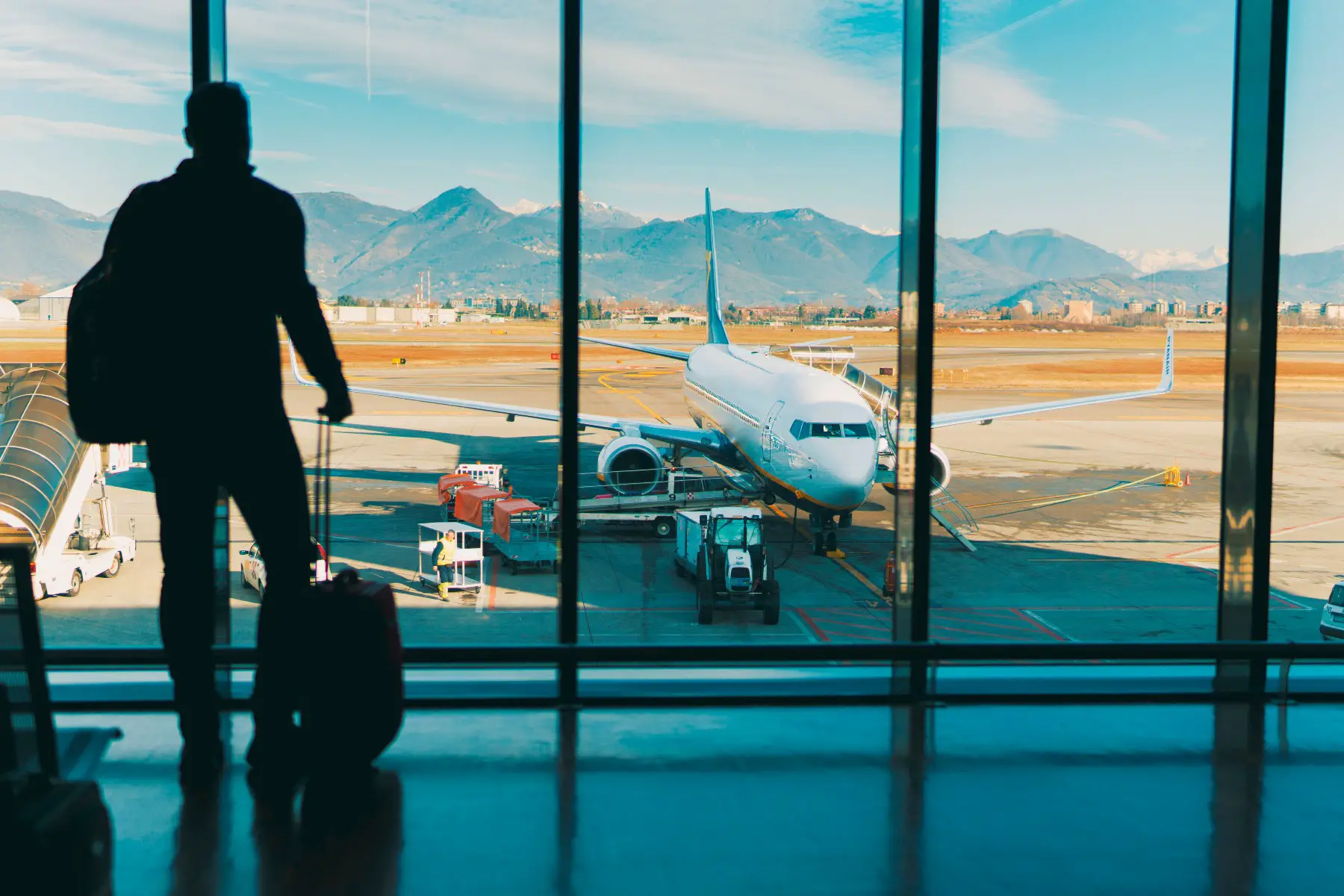
As this visa is not always required, you can check with your local embassy what applies in your case.
Short-stay visa applications for Italy
You can get a visa through the Italian embassy or consulate in your home country or any worldwide visa application center that Italy has outsourced to. You must file the application before your departure to Italy. Applications typically take around 15 days to be processed. However, in certain circumstances, it can take up to 60 days, so it’s advisable to apply with plenty of time to spare.
Italy short-stay visa requirements
You’ll need to provide several documents, including:
- Completed visa application form
- One recent passport photo
- A valid passport with an expiration date at least three months after the date you plan to leave the Schengen area
- Proof of accommodation (e.g., hotel reservation)
- Proof of return flight
- Proof of health insurance
- Proof of sufficient income
- Any other relevant documents related to your visit
You will also need to attend a short interview as part of the process.
Short-stay visas usually cost €90 for adults, €45 for children aged 6-12, and are free for children aged under 6. Nationals from Armenia, Azerbaijan, and Russia pay only €35. The following people don’t pay any fees:
- Relatives of EU/EEA nationals (European Economic Area – Iceland, Liechtenstein, and Norway)
- Researchers carrying out scientific studies
- School pupils, students, postgraduate students, and accompanying teachers on a school or study trip
- Selected holders of diplomatic, official, or service passports traveling for official purposes
What are long-stay visas for Italy?
If you want to stay in Italy for more than three months, you can apply for a long-stay type D visa. There are several different visas available, and their duration depends on the purpose of your stay.

You can apply for the following long-stay visas:
- Adoption and family visas
- Study visas, such as:
- Study visa
- Apprenticeship visa
- Vocational training visa
- Work visas, including:
- Investor visa
- Italia startup visa
- Research visa
- Salaried-employment visa
- Salaried-employment – Entertainment field (artists)
- Salaried-employment – Maritime
- Salaried-employment – Sports activities
- Seasonal work visa
- Self-employment visa
- Voluntary work visa (European Voluntary Service)
- Voluntary work visa (national quotas)
- Working holiday visa
- Other long-stay visas, such as:
- Elective residence visa
- Medical care visa
- Mission visa
- Re-entry visa
- Religious visa
Adoption and family visas
Italian residents and citizens can invite selected family members to join them in Italy on a family reunification visa. This visa is usually valid for two years and renewable for up to five years.
Qualifying relatives include:
- Spouse or registered partner
- (Adopted) children aged under 18
- Dependent children aged over 18
- Dependent parents

Adopted children under the age of 18 are naturally also eligible for the family visa. However, if you are not yet their legal parent but you are in the process of adopting, you can apply for an adoption visa.
This visa includes a residence permit and does not expire. That means the minor can enter and reside in Italy for an unlimited amount of time.
Study visas
There are various long-stay student visas in Italy, valid for up to one year. If you have a multi-year program, you do not have to renew your visa. Instead, your residence permit allows you to stay in the country for the duration of the course or placement. The residence permit also expires after one year; you do have to renew this one.
Italy’s study visas include:
- The generic student visa for university studies as an undergraduate or postgraduate
- Apprenticeship visa
- Vocational training visa
Work visas
If you are traveling to Italy for work purposes that will take more than three months, you can apply for a long-stay work visa.
As with the short-stay visas, each long-stay work visa comes with different requirements.
Visas for digital nomads and remote workers
Italy launched its digital nomad visa in April 2024. This type of visa enables highly skilled remote workers to work from within their borders for overseas companies and allows them to earn and pay taxes as a resident of that country.
Digital nomad visa requirements for Italy
This document is only available to workers in eligible professions. They must have at least one of the following:
- A recognized bachelor’s, master’s, or doctorate degree
- Approval from an Italian authority to work in a regulated profession (contact the applicable licencing body to find out more)
- A highly professional qualification with at least five years’ experience in the relevant field
Other visas
Elective residence visa
If you want to move to Italy and can finance your stay without the use of public funds (e.g., retirees), you can apply for an elective residence visa. In 2024, the minimum income requirement is set at over €31,000 a year.
The visa is usually valid for two years and renewable for up to five years. You can contact authorized institutions and municipalities for free information, consultancy, and assistance to apply for this visa.
Medical care visa
You can apply for a medical care visa if you have a pre-agreed medical treatment with a recovery that lasts over three months.
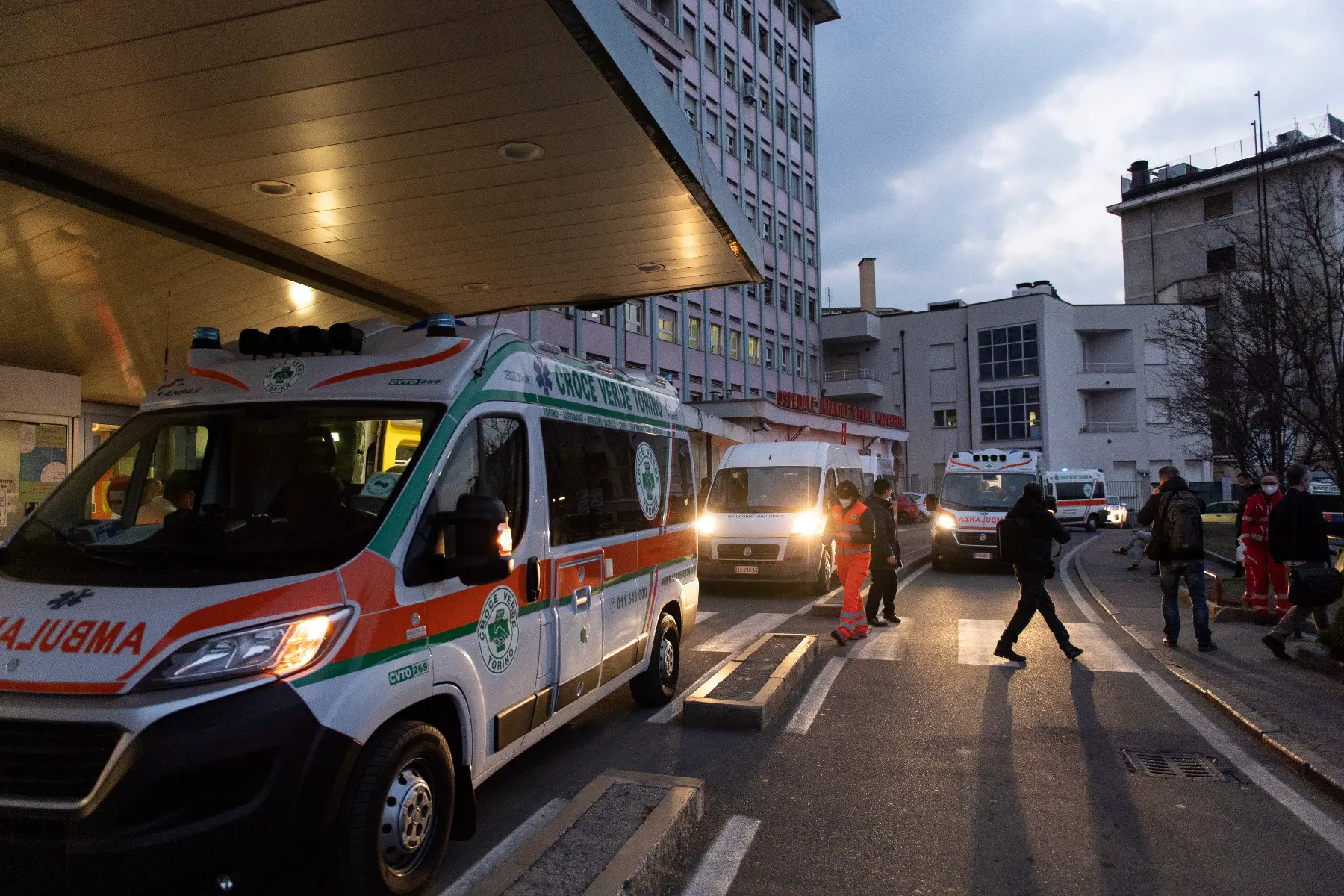
It must be a necessary treatment, and an Italian doctor, medical specialist, hospital, or clinic must agree to provide treatment. The visa will be valid for the duration of treatment and recovery.
Mission visa
Official visits with the purpose of strategic or relationship-building activities that benefit Italy at an international level require a mission visa. This visa is valid for the duration of your duties, up to a maximum of five years.
As with the short-stay mission visa, the long-stay version is only available to a select group of people. These include:
- Members or officials of a foreign government
- Employees of a foreign public office, foreign public entity, or international organization
- Private citizens who are carrying out activities considered of strategic relevance for the relationship between Italy and the foreign country
Re-entry visa
If you already have a valid residence card, but it is expired, lost, or stolen, you can get a re-entry visa to travel back to Italy. Once in the country, you must contact the Immigration Office of your local Police Headquarters (questure) within eight days of your arrival.
Foreign nationals who are in the process of requesting a residence permit do not need a re-entry visa to travel back to Italy. They only need the receipt of the residence permit application from the Italian Postal Services and their first visa (which allows them to be in Italy).
Religious visa
Faith professionals who are carrying out official activities that last longer than three months can get a long-stay religious visa. This visa is valid for a maximum of one year.
You can contact authorized institutions and municipalities for free information, consultancy, and assistance.
Long stay visas in Italy: requirements and application
The application process for long-stay visas is largely the same as it is for short-stay visas. They’re available through the Italian embassy or consulate in your home country or at a worldwide visa application center and typically take between 30 to 60 days to process.
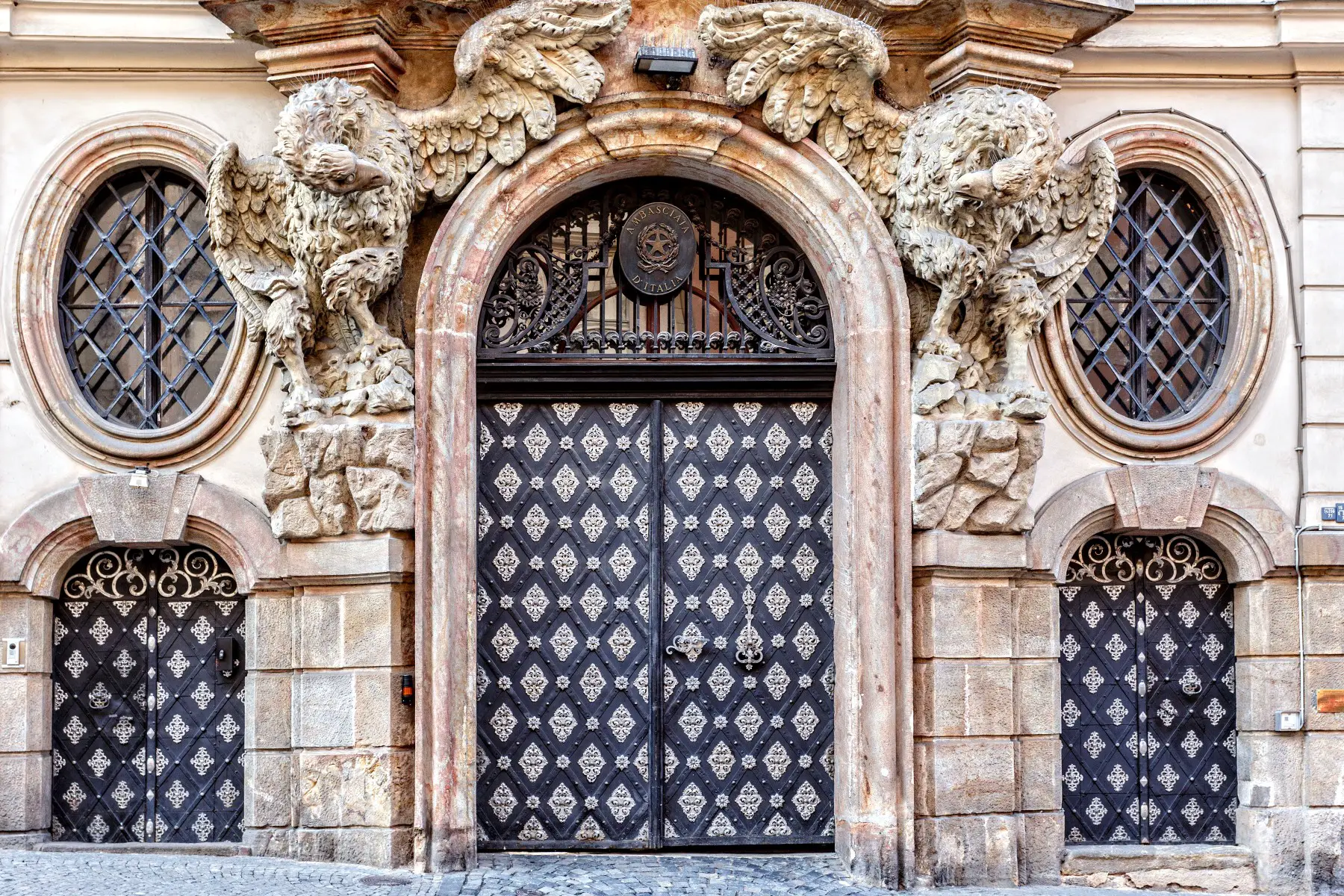
You need to send a completed application form (PDF in Italian) along with:
- A valid passport
- One recent passport photo
- Proof of health insurance
- Proof of sufficient income
Additional documentation will depend on the visa and permit you are applying for. You can check your requirements on the Italian visa website.
Fees for most long-term Italian visas are currently €116 (2024). Student visas cost €50, and certain other visas, like adoption visas, are free of charge.
Asylum seekers and refugees in Italy
Italy has signed the 1951 Geneva Convention on refugees and has adopted the Dublin Regulation with regard to handling international protection claims.
In 2024, there were 130,565 first-time asylum applications in Italy. By 2023, Italy was home to just over 298,000 refugees. The three most common countries of origin during that year were Ukraine, Nigeria, and Afghanistan.
Refugees can claim asylum with the Italian border police or at any police station in the country. The police will identify you and pass your details on to the Italian immigration authorities.
To file an application, you’ll need to complete a C3 form (Modello C3) and provide any information or documentation that supports your claim.
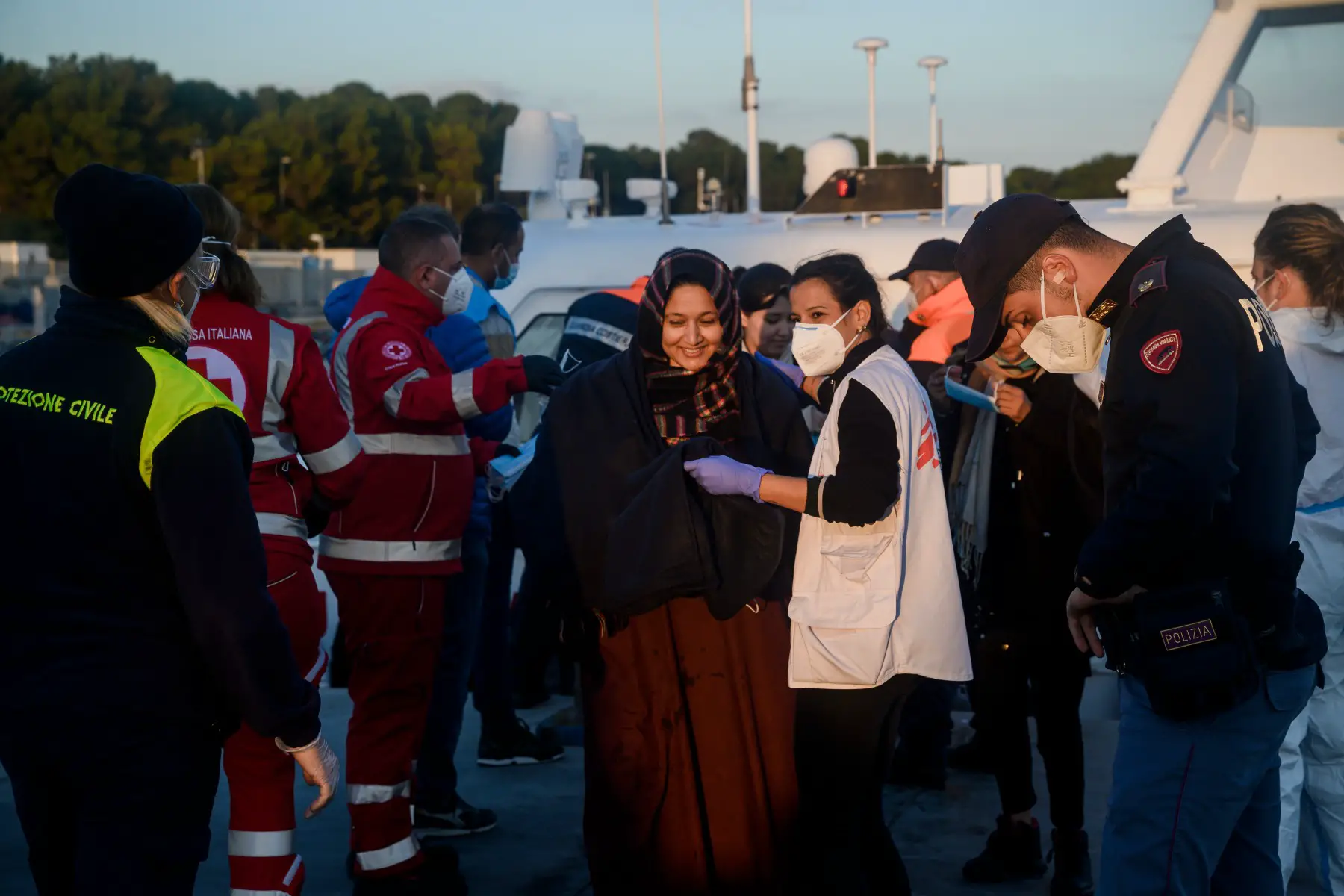
For example, this could be:
- Any form of ID
- Arrest warrants
- Witness statements
You will also undergo an interview where you will be asked questions about your asylum claim.
Asylum applications in Italy are assessed by the Territorial Commission for the Recognition of International Protection (Commissioni Territoriali per il riconoscimento della protezione internazionale). It can take anywhere from a few weeks to a few months to process. In the meantime, you will be given a six-month resident permit (Permesso di soggiorno per Richiesta Asilo) that can be renewed until you get a decision on your asylum application.
If you need financial support during this time, you may get a place in a reception center where you can get shelter, food, clothing, and money to buy essentials. You also have rights to legal and medical assistance and can look for work two months after filing your claim.
Asylum decisions
When the Territorial Commission has reviewed your application, they will issue one of the following decisions:
- Grant you refugee status – you get a five-year residence permit (Permesso di soggiorno per Asilo Politico) as a refugee in Italy
- Offer subsidiary protection – meaning you don’t meet all the requirements for full refugee status but will risk your safety if you return to your home country. You will get a five-year residence permit (Permesso di soggiorno per Protezione Sussidiaria), after which your situation will be reviewed.
- Offer special protection – given in special circumstances to those who don’t meet the requirements for refugee status or subsidiary protection, but do face certain risks. You will get a two-year permit (Permesso di soggiorno per Protezione Speciale), after which your case will be reviewed.
- Complete rejection of the application
If your application is rejected completely, you file an appeal with the Italian courts. In the meantime, you can apply for a six-month residence permit (Permesso di Soggiorno per Attesa Esito Ricorso) that allows you to stay in the country during the appeal.
The Ministry of the Interior has produced a guide for asylum-seekers in Italy, which is available in 12 different languages. You can also find more information on the UNHCR website and get details of services for asylum-seekers in Italy at Juma.
Italian residence and citizenship
Due to the two-tier immigration system, EU/EFTA nationals don’t need a residence permit to settle down in Italy. However, they will need to register with their local municipality if their stay is for longer than three months.

Non-EU/EFTA nationals staying in Italy for more than three months must apply for a temporary residence permit within eight days of their arrival. This validates your visa, allows you to build a life in the country, and travel to other EU member states.
Residents staying for longer than one year are required to sign the country’s Integration Agreement (Accordo di integrazione). By underwriting the agreement, you agree to:
- Learn to speak Italian to at least A2 level
- Gain sufficient knowledge of the fundamental principles of the Constitution of the Republic
- Get familiarized with the civic culture and civil life (particularly with the sectors of health, education, social services, work and tax obligations)
- If applicable, guarantee to send minor children to school
EU Blue Card
The EU Blue Card is a special residence permit for certain salaried highly skilled workers who:
- Have gained higher professional qualifications through at least:
- Three years of higher education (or an equivalent of 180 credits)
- Five years of relevant work experience
- Have a work contract for at least one year
- Have a salary of at least 1.2 times the national average gross annual income
- Meet the legal requirements for regulated professions
- Meet other general requirements for entering the country (e.g., valid health insurance)
This permit is valid for:
- Two years when you have an open-ended contract
- Three months past the end date on fixed-term agreements
You’re allowed to bring your family members with you or be joined by them at a later date. If you have an EU Blue Card from another EU member state, you do not need an entry visa to move to Italy.
The EU Blue Card can be renewed for up to five years. After living in Italy for two years, and five years in total in the EU, you can apply for permanent residence.
Residence permits for UK nationals
Thanks to the Withdrawal Agreement, UK citizens who were living in Italy before 1 January 2021 have broadly the same rights as EU citizens.
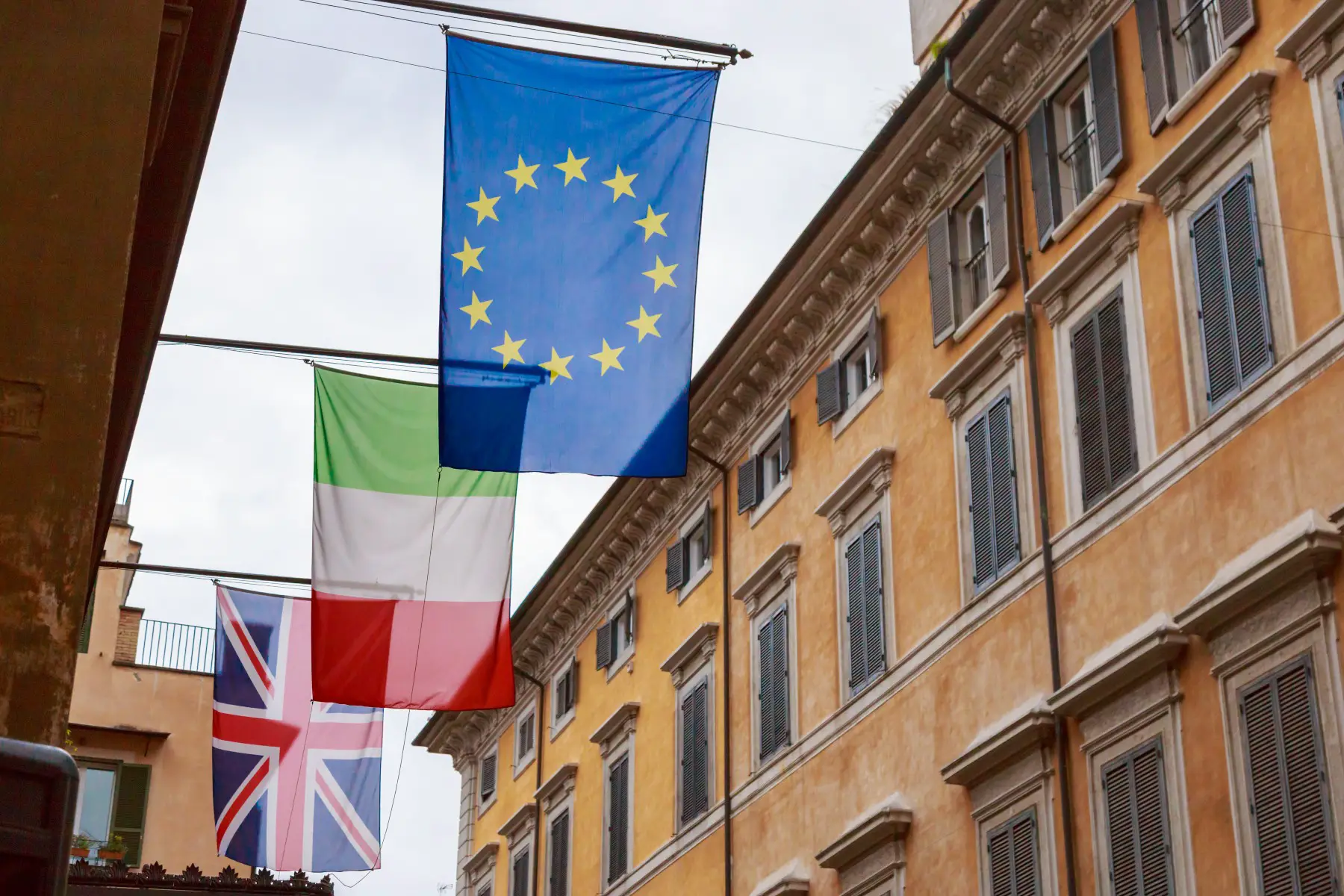
However, you must have a Withdrawal Agreement residence card. This acts as:
- A temporary permit (valid for 5 years) if you’ve been in Italy for less than five years
- A permanent permit (valid for 10 years and renewable) if you’ve been in the country for more than five years
You are not legally obliged to purchase the new card as long as you can prove you had legal residence in Italy before the Brexit withdrawal date.
Extraordinary circumstances
There are also certain situations (e.g., the war in Ukraine or gender-based violence) that call for a permit for special cases (Permessi di soggiorno per Casi Speciali). This permit has several subcategories, including:
- Social protection for victims of violence or serious exploitation (protezione sociale per vittime di violenza o grave sfruttamento) – you’ll be given a six-month residence permit, which is renewable
- Victims of domestic violence (vittime di violenza domestica) – you get a one-year residence permit
- Particular labor exploitation (particolare sfruttamento lavorativo) – given to those who have filed a complaint against their employer and are helping in the criminal proceedings. You’ll receive a six-month residence permit, which is renewable.
- Natural disasters (calamità) – when the situation in your home country prevents you from returning. You get a six-month residence permit, which is renewable.
- Serious medical treatment (cure mediche) – available to those with particularly serious health conditions. You’ll be given a residence permit that is valid for the duration of your treatment.
- Deeds of particular civil value (atti di particolare valore civile) – heroes can receive a two-year residence permit to celebrate their valiant act. This permit is renewable.
Residence application process
Your residence permit will be linked to your visa. Depending on the type, you can apply at the following:
- Unique Immigration Desks (Sportello Unico per l’Immigrazione) set up in every provincial prefecture (prefettura)
- Selected municipalities
- Selected patronage institutes (patronati)
- Selected local post offices (uffici postale)
- Local police headquarters
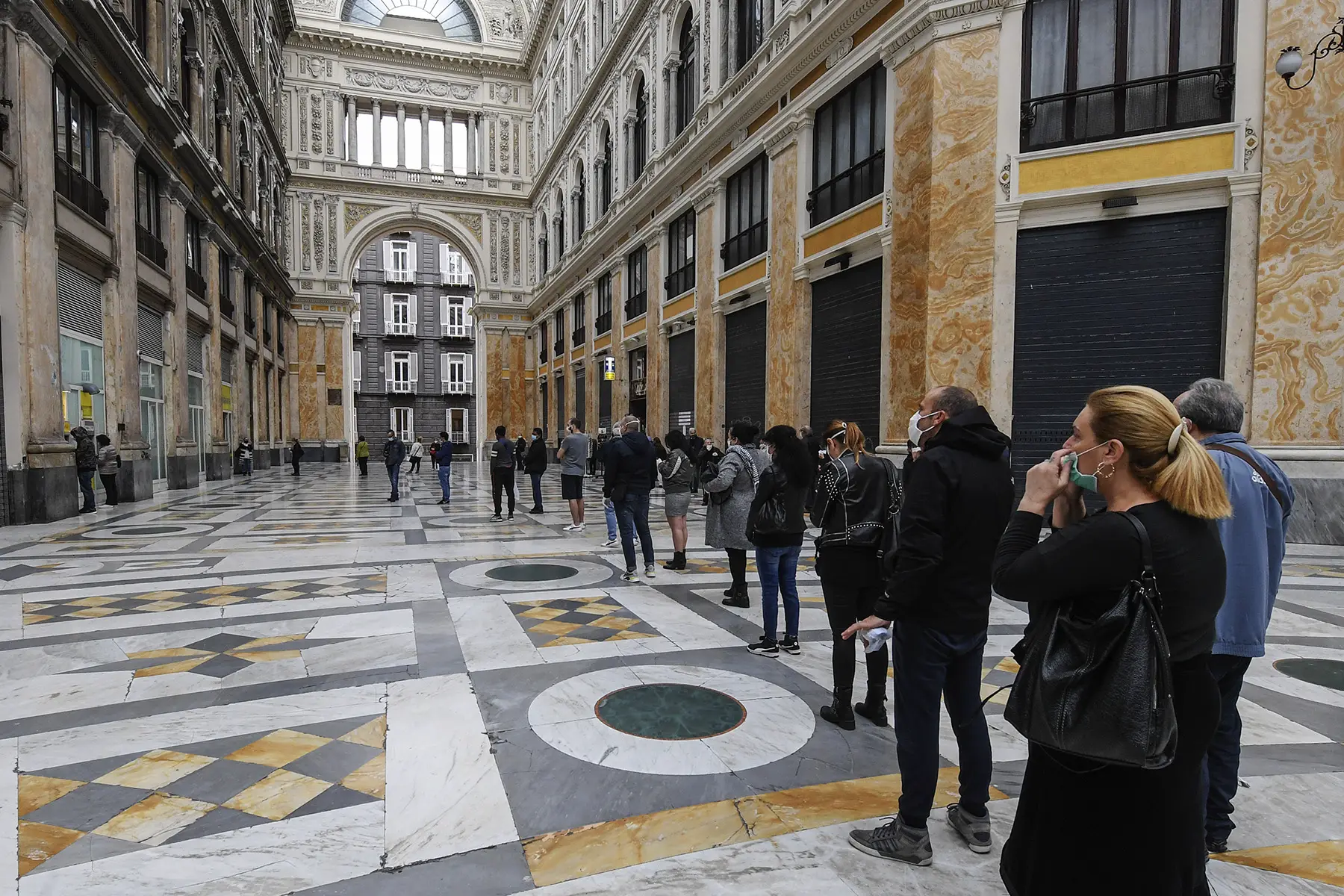
The most common way of applying is through the post office. They have a free yellow application kit (kit giallo) with two forms and a set of instructions. You are required to provide:
- A valid passport or equivalent travel document (in Italian), plus a copy in A4 format
- Proof of payment
- Additional documents (pertaining to your stay)
After completing the application, the authorities will make you an appointment with the local police. There you can submit additional information, including:
- Four passport photos
- Proof of the purpose of your stay (e.g., a job contract or study enrollment)
- All relevant documents used during your visa application
- Proof of health insurance
You can register with the Immigration Portal (Portale Immigrazione) to manage and track your permit application. It is usually processed within 60 days but could take up to six months. You will receive a receipt from the immigration office that functions as a provisional residence permit.
If your application was successful, you can request and make an appointment to pick up your Electronic Identity Card (Carta di Identità Elettronica – CIE). The residence permit will be valid for the duration of your entry visa. The validity of the residence card will depend on your age:
- Valid for 3 years if it is for a minor child up to the age of 3
- Valid for 5 years if it is for a minor aged between 3 and 18
- Valid for 10 years if it is for an adult over the age of 18
If you decide to stay for longer, you must renew the permit or card at least 60 days before its expiry. The renewal process and costs are largely the same as for first-time applications.
Cost of residence permits
The cost of a temporary residence permit application is a little over €76. You’ll have to pay an additional €40–100 for the actual permit, depending on its validity.

The additional fees will be waived if the application was made:
- For a minor under the age of 18
- By a refugee, asylum seeker, or stateless person
- By someone granted subsidiary protection or humanitarian protection (e.g., to victims of domestic violence or labor exploitation)
- To receive medical treatment (including for the carers)
- To duplicate, update, or make a conversion of a valid residence permit
The cost of the CIE is fixed at €16.79. Keep in mind that some municipalities charge additional administration costs.
Permanent residence
After five years of continuous legal residence in Italy, both EU/EFTA nationals and third-country citizens can apply for a permanent residence card. The five-year requirement means you cannot leave Italy for more than six months consecutively or ten months in total.
As a permanent resident, you’ll get additional benefits, such as:
- Access to the National Health Service (Servizio Sanitario Nazionale – SSN)
- Access to Italy’s state pension scheme
- Free movement throughout the EU
After 10 years of legal residence, you can apply for Italian citizenship through naturalization. This can be sooner in certain cases, for example, when you marry an Italian national.
How to appeal or complain about a visa decision?
If your visa application is rejected, you will receive the decision with the motivation for refusal in your native language, or, failing that, in English, French, Spanish, or Arabic.
You can file an appeal with the Regional Administrative Court (Tribunali Amministrativi Regionali – TAR) within 60 days. If you applied for a family reunification visa, you can lodge an appeal with the competent Ordinary Court (Tribunale Ordinario) without any time limit.
It can also occur that your residence permit application or the renewal of your permit is rejected. First, you’ll get a Notice of Rejection (Preavviso di Rigetto) to warn you of any issues with the application (e.g., insufficient income). You can present a defense brief within 10 days. After that, the decision becomes definitive, and you are invited to leave Italy. You then have 60 days to appeal the decision to the TAR.
Any appeals are notified directly to the State Attorney’s office (Avvocatura dello Stato). It is, therefore, important to get specialized legal representation that can help you with your appeal. However, this can be expensive as you will usually have to pay legal fees.
Useful resources
- Immigration Portal – information on visas and residence permits, including a portal where you can register and manage applications
- Ministry of Foreign Affairs and International Cooperation (Ministero degli affari esteri e della cooperazione internazionale) – Italian government website with information on visas including a visa search portal where you can find out which visa you may need for Italy
- Ministry of the Interior – Italian government ministry responsible for immigration, visas, and residence permits
- Poste Italiane – website of the Italian post service with more information about residence permits
- State police website (Polizia di Stato) – information on visas and residence permits
